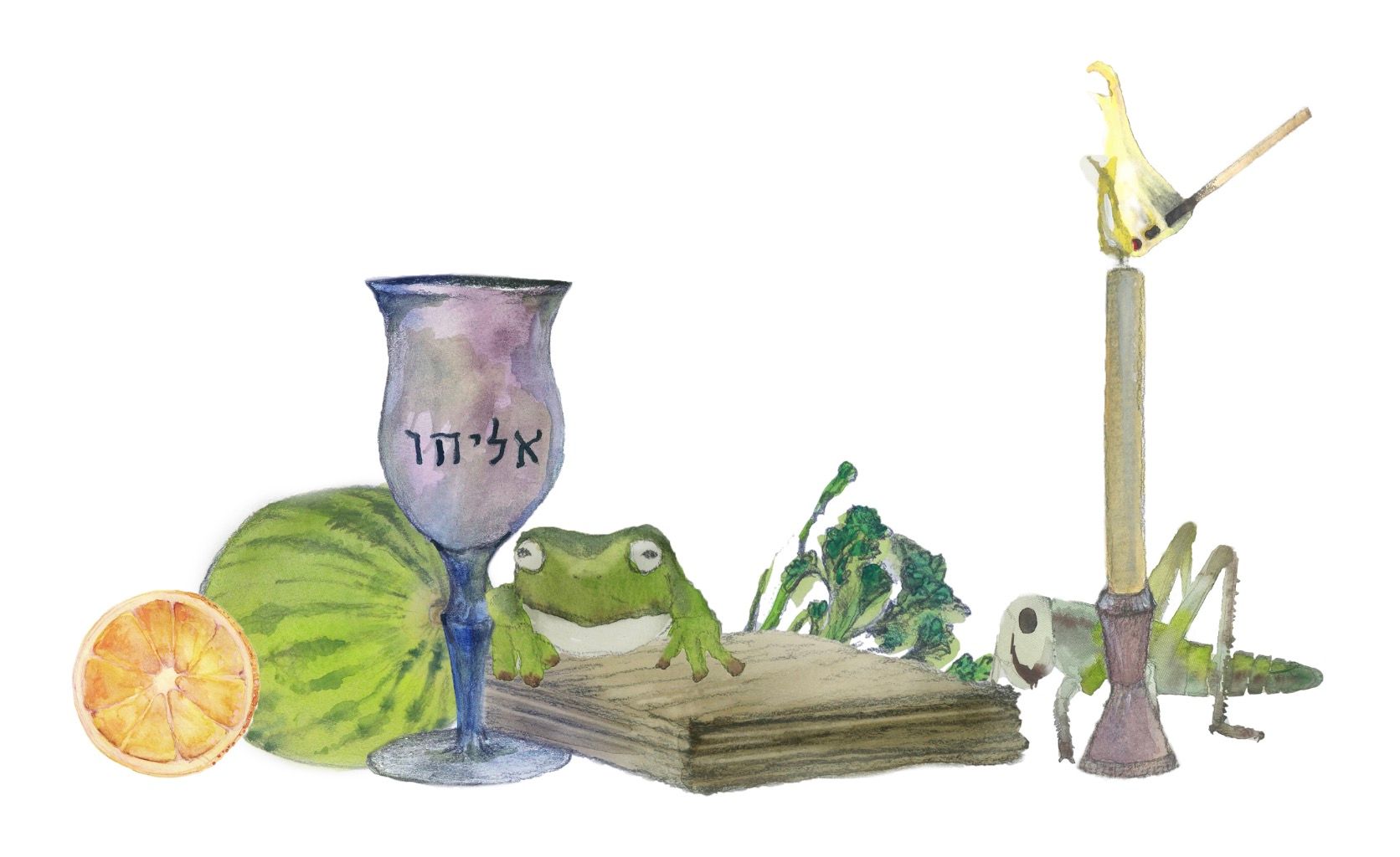Preface

Until we are all free, we are none of us free.Emma Lazarus, 1883
Opening Letter from Movements
This Passover, we are calling for Freedom for All. Join us.
For thousands of years across the globe, the Jewish people have celebrated Passover and told the story of Exodus as a reminder that we have not always been free. This year, as we witness continuing violence and destruction of Palestinian life in the name of Jewish safety, it is clearer than ever before: if our freedom is dependent on the oppression of another people, we will never truly be free.
Since the massacre of 1200 Israelis on October 7th, 2023, over 30,000 Palestinians in Gaza have been killed by the Israeli military in an unconscionable act of collective punishment that is continuing into mass starvation. We call for an end to this killing. We demand a permanent ceasefire now, a hostage deal, and an end to siege on Gaza.
This Passover, as Jewish movements mobilizing our communities against the occupation, we recommit ourselves to fighting for true freedom - collective liberation for Jews, Palestinians, and all people.
By celebrating Passover together in a unified, explicitly liberatory way, we say to the world that we stand in solidarity with the Palestinian people because of our Judaism, not in spite of it.
The Freedom for All seders across the world are an initiative of Na’amod (UK), IfNotNow (USA), Freedom4All Zurich Group (Switzerland), Laboratorio Ebraico Antirazzista (Italy), Jews for Racial and Economic Justice (NYC)
and All That’s Left (Israel/Palestine).
Through this initiative, we embody a Jewish tradition committed
to resistance against oppression and devoted to freedom for all.
16th April 2024
About This Haggadah
Please host your Seder in the way that feels most authentic to you.
This Haggadah was created with new content to speak to the current
moment and contains the core rituals, but not all of the traditional
text or commentary. You can choose to use it from front to back, or
you may choose to recite only some passages, skip others, and mix and
match with your favorite Haggadah and your own Pesach traditions.
The primary text and blessings are intended to be recited aloud at
the seder. Additional commentary and poetry is offered in text boxes
for personal reflection, or to incorporate out loud in the seder as you
choose. The layout of this Haggadah is designed so that it is easy to
only print some sections if you wish.
Family Friendly Alternatives
We have included some family friendly passages and rituals for younger members of our community. In addition to those included in the main Haggadah pages, we have also created a supplement with a few family-friendly alternatives to the primary text.
Throughout the Haggadah when you see this ♥ symbol, it denotes a child-friendly alternative of that section can be found at the back of the Haggadah.
A Note About Accessibility
You are welcome to print this Haggadah out, and we encourage you to consider having people share so that the earth can use less paper. (If you do use print outs, we invite you to recycle afterward.)
You can also read this Haggadah on your phone, tablet or computer, so that you don’t need to have access to a printer to participate and if you need bigger fonts you can zoom in as needed.
Since everyone’s body is different, we invite you to honour what you need while we partake in our traditions tonight. Fidgeting, using the bathroom, taking breaks—and being kind when our fellows need these things—are
all some of the ways that we can welcome each other to the table.
We are encouraged to recline during the Seder because we have been
led out of enslavement, and we have the luxury of reclining. Take reclining
to mean whatever your body needs, as part of our liberatory values.
Notes on Language
About Yisrael
The word Yisrael (Israel) comes from the name given to Ya’akov (Jacob), meaning (in one interpretation) “one who wrestles with G–d.” When we say the word “Yisrael” in blessings, or tell of the “Israelites” in the story of Exodus, we are not referring to the modern state of Israel. Rather, we are connecting to our history as a people who embrace wrestling with overwhelming mysteries and contradictions, with the traditions we inherit, with systems of power, and with injustice.
About Mitzrayim
Throughout this Haggadah, we use the original Hebrew word Mitzrayim instead of Egypt. On Passover, we retell the story of the Israelites’ journey
to freedom from oppression in Mitzrayim. Mitzrayim comes from
the root “tzar,” meaning “narrow or constricted.” We are intentionally emphasizing this symbol of “constriction” overactual people or places.
Divine Words
To many the words we use for “G–d” are metaphors for something that is ultimately beyond language. If the traditional terms do not resonate with you, we’ve offered some possible substitutions.
Havaya | Being, Existence | הֲוָיָ"ה
Ruach | Spirit, Breath | רוּחַ
HaShem | The Name | הַשֵּׁם
HaMakom | The Space | הַמָּקוֹם
Shechinah | Ever presence, feminine aspect of the divine | שְׁכִינָה